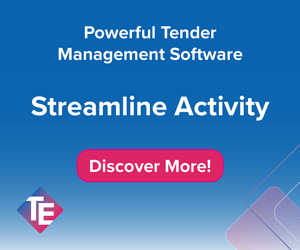Whether you win or lose, it’s a best practice to request a debriefing meeting with the customer. Unfortunately, your proposal team can get shut out by the customer if your company loses a bid, making it difficult or impossible to learn why.
Here are eight ways to get your most important post-mortem questions answered—so you can strengthen your next proposal.
1. Reframe Your Questions
Crafting your win strategy and discriminators alongside the customer can dramatically improve your win probabilities. Reframe your post-mortem questions so they’re appropriate to ask before the next RFP. For example:
| Typical Post-mortem Question | How to Ask It Pre-RFP |
| What was the biggest consideration in your selection decision? | What will be the single biggest consideration in your selection? |
| How well did we do in tailoring our presentation/product/service to your needs? | How can we best tailor this solution to suit you? |
| What were your decision criteria? | Do you know what the decision criteria will be? How will the factors be weighted? |
| Did you talk to any references about our product/service? What did they have to say? | Who would be a compelling reference? What would you want to hear about us? |
| What was the biggest difference between us and the other solutions you considered? | How can we outshine the other providers you are considering? |
| How easy did we make this decision for you? | How can we make this decision easy for you? |
2. Question the RFP Early
RFP requirements can be interpreted differently, even when the instructions are well written. Before you bid, microanalyze the RFP to make sure you understand the evaluation criteria and how your proposal will be scored. If any of the selection criteria are vague or unclear, start asking questions—lots of questions. You’ll get insight you need to write the proposal from the customer’s point of view, and you’ll start building a relationship. If you’ve asked thoughtful and thorough questions throughout the bidding process, the procurement officer may be more helpful after the decision is made.
3. Ask for the Debrief ASAP
For federal procurement opportunities, debriefing requests must be submitted within three days. On the commercial side, timing is equally important, but the conclusions aren’t always clearly communicated. Business development teams must stay in tight contact with the customers so they’re ready to request information about the outcome. You’re more likely to secure a post-mortem meeting if you ask right away.
Crafting your win strategy and discriminators alongside the customer can dramatically improve your win probabilities.
4. Be Polite
Even if you don’t agree with the outcome, mind your manners. Respectfully ask for a debriefing meeting, letting the customer know you’re earnestly trying to understand its point of view. The goal is to find out how the evaluation criteria were applied to your proposal.
In federal opportunities, politely point to any regulations about sharing the outcome, scores, or notes. In commercial opportunities, remind the customer that it’s industry best practice to seek feedback. This lets the procurement officer know you’re a serious and professional bidder.
5. Benefit the Customer
Throughout the bidding process, you focused on the benefit to the customer. Don’t stop now. Frame your meeting request in a way that benefits the customer. What will the customer gain by helping you become a better bidder?
6. Scan the Perimeter
In some procurement situations, particularly in government opportunities, bidders are blocked from the customer once an RFP is issued. To build a stronger proposal—and to get useful feedback about the outcome—bidders can glean key information from peripheral stakeholders. Interview industry association leaders, potential subcontractors, current vendors, and even the client’s customers. Attend public meetings and read relevant articles and legislative briefings. Leverage your back-channel network to get important information, without talking to the customer.
7. Stay Open-minded
The point of a debriefing meeting is to hear the customer’s point of view. A small detail that you didn’t view as critical, like a certification, may have greatly influenced the bid.
If you’re granted a post-mortem meeting, plan ahead by organizing and prioritizing your questions. Send at least two people to the meeting, including someone who’s independent from the proposal team and can objectively receive the feedback. Designate a highly trusted leader for the call—ideally someone who can remain calm and build rapport.
8. Use It or Lose It
Once you’ve had your post-mortem questions answered, act on the information. That means cascading the feedback throughout the organization and applying it directly to future bids. If a customer sees the same “mistakes” on future bids, it’s damaging to the relationship. On the other hand, a proposal that applies post-mortem feedback will be stronger. And you’re more likely to get an audience with the customer the next time you ask.
This article was written with expertise from Cynthia Weinmann, CF APMP, of Strategy Horizons Consulting and from Ginny Carson, CPP APMP, and Kellam White of Life Cycle Engineering.



Join the Conversation